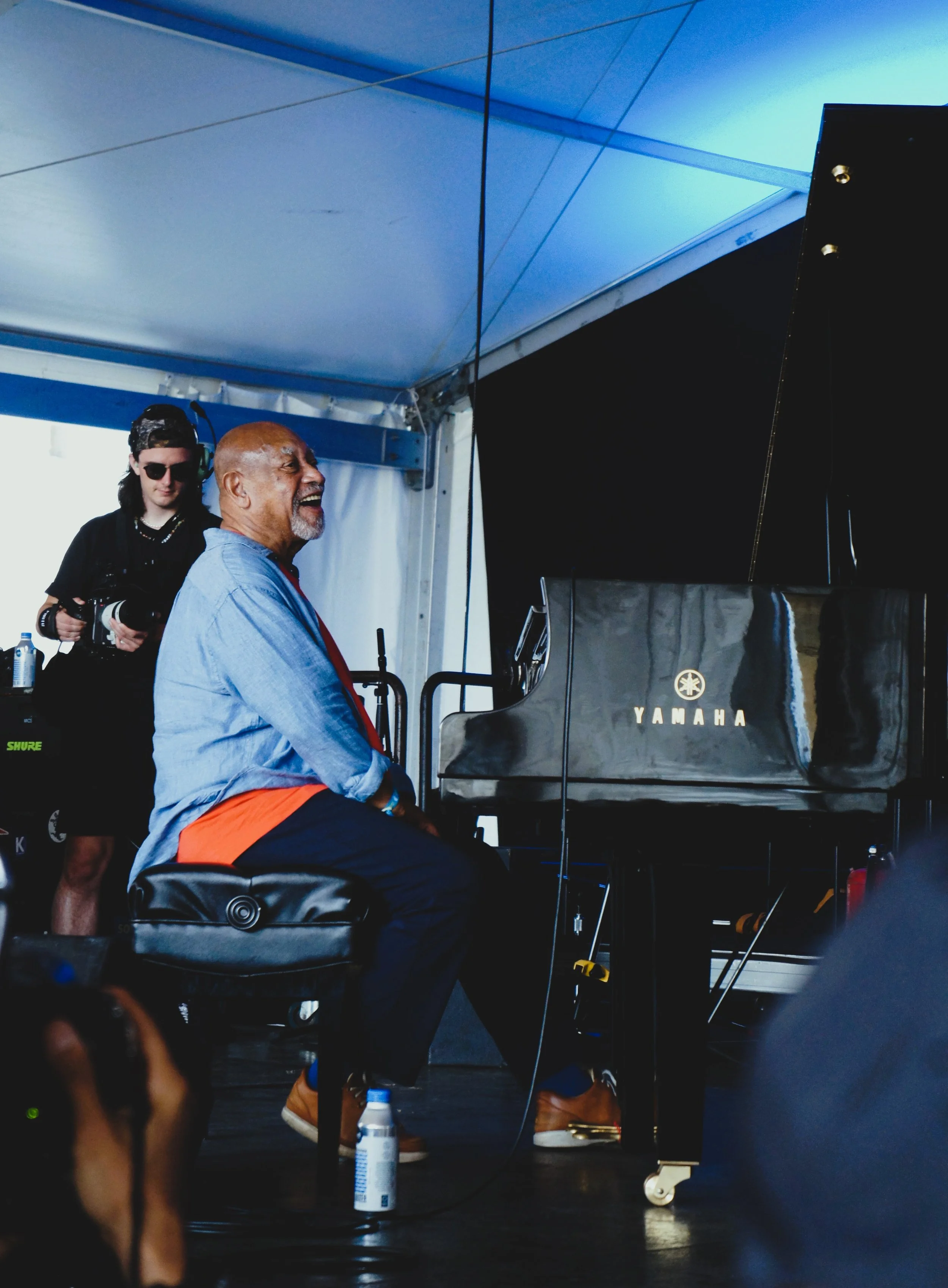The Newport Jazz Festival celebrates 70 years
Seventy years ago, a young, twenty-something-year-old from Lynn, Massachusetts started what would become the longest-running jazz festival in the United States: the Newport Jazz Festival. He did it because he wanted to celebrate jazz music and its innovators and because he wanted the world to know that the art form was both worthy and deserving of celebration. This past weekend, seventy years later, what George Theodore Wein created with the financial support of Louis and Elaine Lorillard brought artists and audiences to Fort Adams State Park from all over the world because after all this time it’s become abundantly clear that Wein was right: jazz music is deserving of celebration. It also showed something else: that not only is jazz music deserving of celebration, but so is the festival and the man that brought them all together.
While the festival's original intent was to celebrate and uplift artists, the Newport Jazz Festival has subsequently become the pinnacle of excellence in an artist’s career. Several artists who performed this past weekend including Laufey, Samara Joy, and Nicole Zuraitis spoke from the stage of how they dreamed of performing at the Newport Jazz Festival in their youth. Others, like Alex Isley and Sunday night’s headliner, Nile Rodgers of Chic fame, acknowledged their excitement over taking up space that some of music’s brightest had occupied before them. Wein, who passed away in 2021 at the age of ninety-four, may only exist among us in the spirit form, but the essence of what he created lives on.
This year’s festival was nothing short of a celebration. It was a musical smile/nod to the heavens in acknowledgment of the festival’s early days and it was a warm embrace of the creative shifts happening in the music industry and with the new artists themselves. Though some long-time attendees expressed missing the jazz-heavy focus that the festival had become regarded for over the years, jazz was present this past weekend. Ravi Coltrane (saxophones), John Patitucci (bass), Danilo Perez (piano), and Terri Lyne Carrington (drums) honored a giant of the saxophone, the late Wayne Shorter who passed away just last year at the age of eighty-nine; Harpist Brandee Younger performed both original compositions and work written by one of her musical inspirations, the late Alice Coltrane; trombonist Fred Wesley was showered with praise by acclaimed bassist and successor to Wein as the festival’s Artistic Director Christian McBride during McBride’s Jam Jawn set that closed out the Quad Stage on Sunday night; another acclaimed bassist Stanley Clarke (who performed his own set on Friday afternoon) joined McBride onstage to introduce living bass legend Buster Williams as he opened on the Harbor Stage on Sunday morning; and NEA Jazz Master Kenny Barron had Friday night’s audience at the Harbor stage rapt as he and his trio performed some of Barron’s work in addition to the work of some of his peers.
Less traditionally speaking Andre 3000, the Grammy award-winning rapper who was once one-half of the group Outkast, played the flute for a curious crowd at the Fort Stage on Friday afternoon; Moonchild and Alex Isley offered up neo-soul and R&B vibes mixed with outstanding musicianship (the members of Moonchild, all alumni of USC’s Thorton School of Music, are talented multi-instrumentalists coupled with lead singer Amber Navran’s delicate yet deliberate vocals. Talented R&B songstress Alex Isley was supported by some of the best jazz musicians on the scene today); Ghost Note, CimaFunk, and Kassa Overall offered high-energy performances that left audiences talking and dancing around the Fort; Acid Jazz is Dead featuring A Tribe Called Quest’s DJ Ali Shaheed Muhammad and Adrian Younge performed a vinyl set that was designed to keep audiences at the Quad Stage on their feet; Meshell Ndegeocello offered up her signature laid-back, funky, and thought-provoking music (she performed music from her newest recording that is dedicated to the life and work of James Baldwin); and Laufey (pronounced Lay-vay) appeared to be the second coming of the Beatles for the young people in the audience who screamed with delight when she suddenly appeared onstage without an introduction to begin her Sunday afternoon set on the Fort Stage. There was something for most everyone.
There’s no way to know if George Wein considered what the Newport Jazz Festival would become in his absence. He and the team who worked with him over the years to build the Newport Jazz Festival into the most esteemed festival in the United States did so with such care and respect for the music and the festival itself, it was difficult to imagine the festival surviving without him. What became clear this past weekend was that Wein’s vision for the festival was that one day it could exist without him and that music would continue to be the thing that brought audiences to Newport. That’s why he hand-picked multi-award-winning bassist Christian McBride to stand in his stead. As for McBride’s vision for the festival, that also seems to be a mystery. If this past weekend offers any indication, one could only guess that McBride’s vision is one of inclusion. No matter the age, no matter the genre of music, no matter the sex, age, or orientation of those in attendance, if you can entertain a crowd, and you are a good musician, you’re welcome at the Newport Jazz Festival. Thank you, George, for sharing your vision with the world, and thank you, Mr. McBride, for seeing it through.
The 71st annual Newport Jazz Festival is scheduled for August 1-3, 2025.







